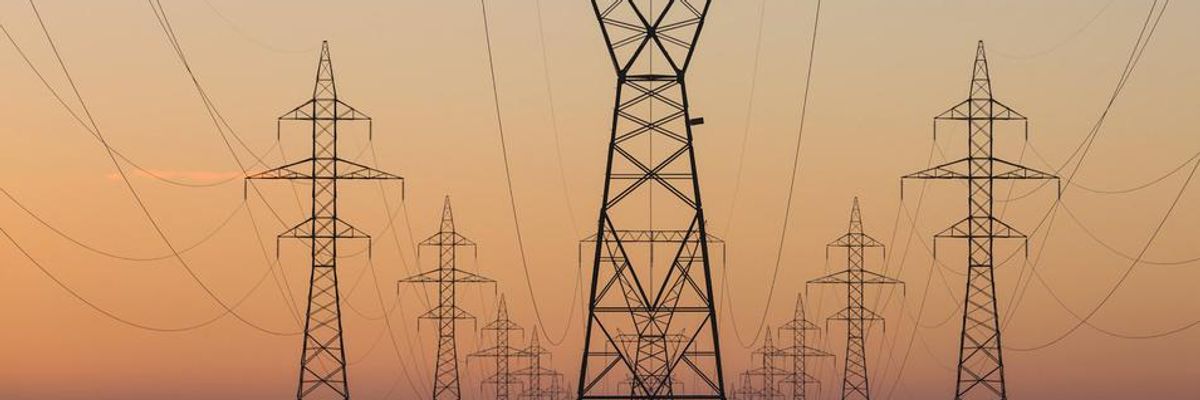Publicly and cooperatively owned utilities offer a better transition path to a fossil-free power grid than their corporate-owned counterparts--as long as they are properly reformed and regulated--the authors of a report published Monday argue.
"It is time to reignite the radical history of community utilities to herald the transition to a genuinely democratic, equitable, and clean energy system."
The report--by Thomas Hanna, Johanna Bozuwa, and Raj Rao of the Democracy Collaborative and Climate and Community Project--found that community utilities "are better suited for a 'Green New Deal'-style transition than for-profit corporate utilities."
However, the authors also contend that "many community utilities as they currently exist must be significantly reformed to fulfill their full potential."
"The United States urgently needs to transition off of fossil fuels and onto clean sources of energy (especially renewable energy) to maintain a livable climate," they assert, noting that "as of 2020, only around 20% of U.S. electricity generation is from renewable energy sources."
"Energy utilities--the companies that run our power systems--have enormous control over the scope and scale of the transition, but have often dragged their feet or even fought against clean energy," the report continues. "Not only does their inaction imperil the very future of humanity, but it directly harms families--often Black, Indigenous, low-income, or otherwise marginalized--who live in the shadow of toxic power plants."
"The current U.S. energy system is dirty and expensive," the publication states. "Thirty-one percent of households in the country have to make the choice between buying groceries or paying their energy bills. In response, communities across the country are beginning to mobilize to demand an energy transition."
The authors stress that "we have a powerful tool to accelerate the energy transition in a way that builds community wealth and energy justice in our communities: publicly and cooperatively owned utilities."
According to the report, around 30% of U.S. households are currently powered by community utilities, whose historical roots the authors call "radical."
"In the early days of electrification 100 years ago, residents across the country rose up against profiteering private utilities who provided poor (or nonexistent) service at high prices by creating their own publicly and cooperatively owned utilities," they note. "In the state of Nebraska, for instance, they kicked all private utilities out of the state for good. To this day, there are no private utilities providing electricity to Nebraskans' homes."
The report also cites the Franklin D. Roosevelt administration's Rural Electrification Administration, a New Deal program that boosted the electrification rate from 10% to 90% in a decade as farmers united to start their own electric cooperatives.
"It is time to reignite the radical history of community utilities to herald the transition to a genuinely democratic, equitable, and clean energy system," the report's authors assert.
The report lays out a nine-point plan for community utilities to realize their full potential. Blocking privatization, setting incentives and mandates for renewable energy, establishing public banks and financing, and boosting democratic governance are some of the steps the authors say are crucial for success.
"Community utilities are much better suited to support a just and equitable clean energy transition than for-profit corporate utilities," said Hanna.
"However, many must be reformed and democratized to fulfill their potential," he added. "Alongside (and integrated with) larger public interventions and institutions in the energy system (such as regional public power producers), community utilities can play a prominent role in the clean energy future we desperately need."
